NOTE: For the current school year, these trips are operating through a partnership with North Thurston Public Schools 4th grade classes. We look forward to increasing our capacity for these trips in the future!
The 4th grade NTPS Field Trips, Salmon, Cedar, Canoe: Stewards of the Ecosystem, takes place in the early spring at sxʷ daʔ dəb (pronounced sok-dah-dub). sxʷ daʔ dəb means “a place to gather your spirit powers” and is one of the many ancestral villages of the Nisqually Tribe or sq̓ʷaliʔabš (squally-absh) named for the village that use to stand on these lands. It is now home to the Culture Center and community garden, which grows dozens of native plants to be used by the Tribe for food and medicine and produces thousands of pounds of fresh produce for the community. The Nisqually Tribe has stewarded these lands since Time Immemorial and continue to pave the way for environmental conservation.
During these field studies, students have the option of choosing four of the six stations available to them. The six stations, Salmon: Smell Your Way Home Game, Cedar: Tree of Life, Canoe: Nisqually Tribal Stories, Salmon Dissection, Streambugs, & Service Learning Project, give students an opportunity to explore the significance of the land, plants, animals, and culture of the Nisqually People. Here is some more information on each of the stations:
Salmon: Smell Your Way Home Game
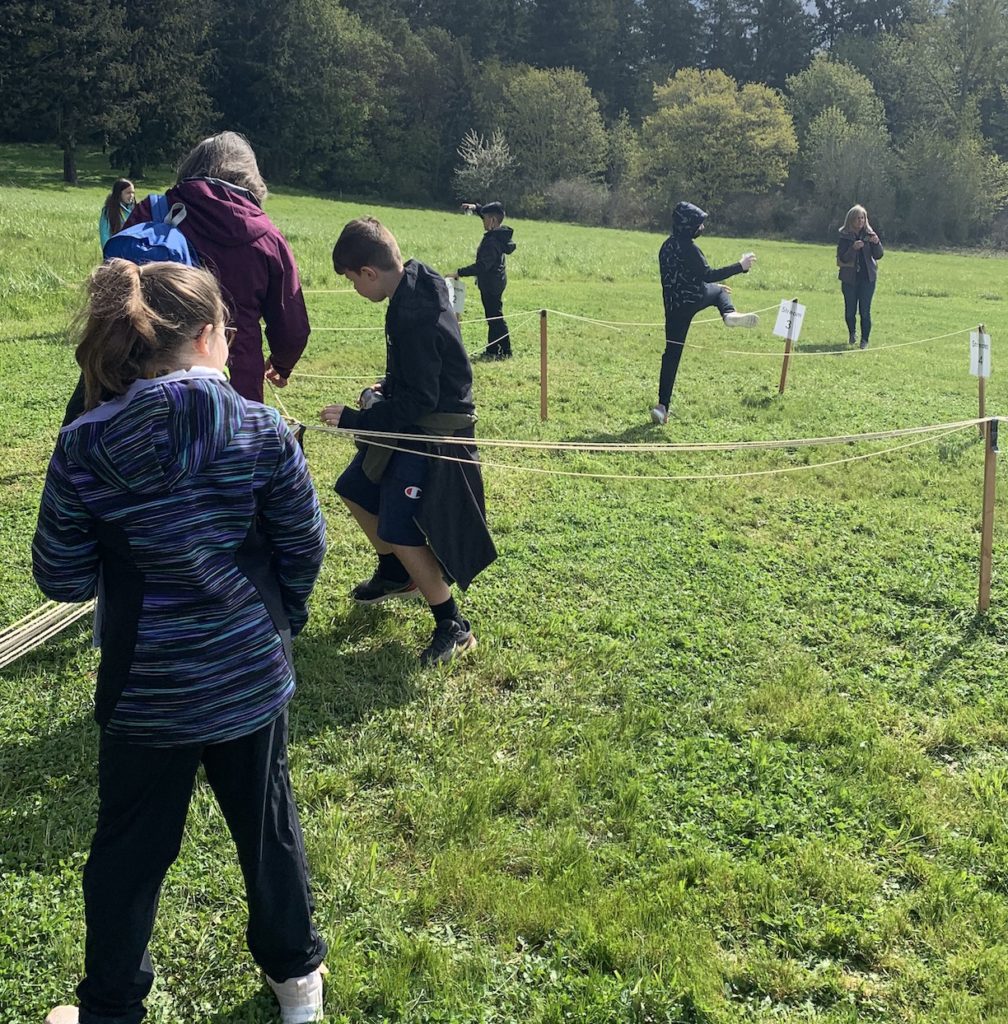
At this station, students explore the world of a salmon’s sense of smell! Salmon have an incredible sense of smell and rely on their nose to return back to the freshwater stream in which they were born to spawn. This activity allows students to step into the shoes (or fins!) of salmon and highlights just how amazing these creatures are!
Students playing the Salmon Smell Your Way Home Game
Cedar: Tree of Life
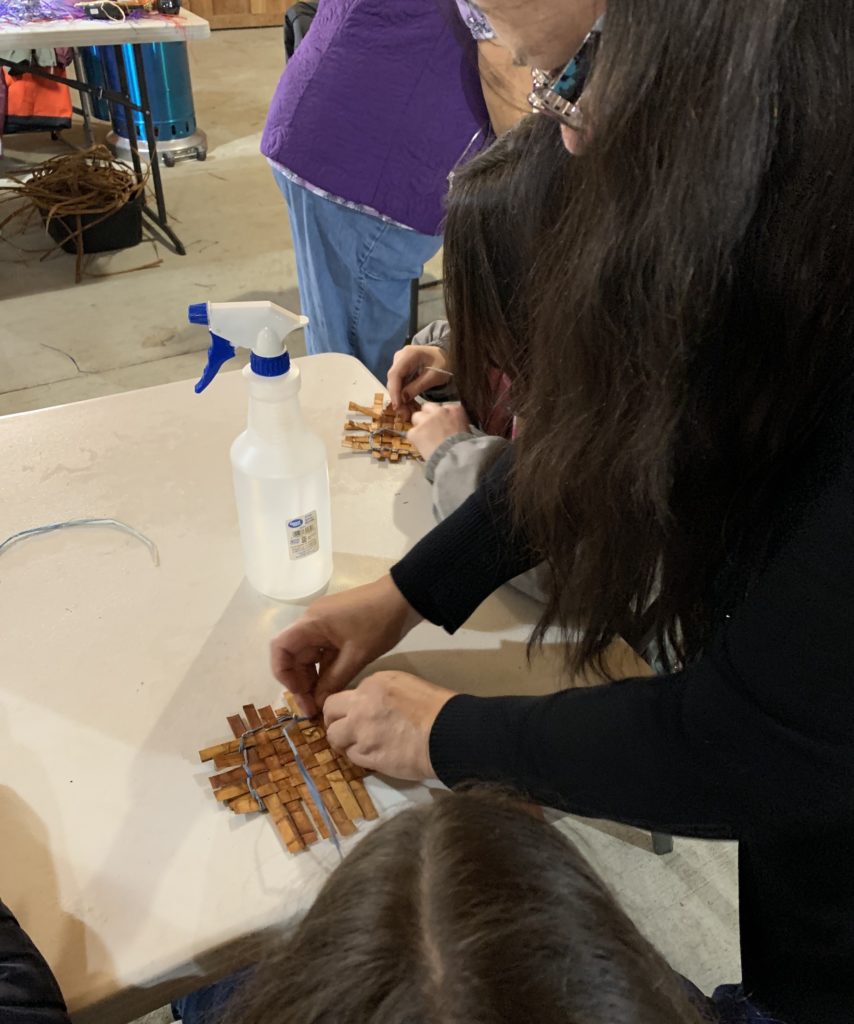
This station is led by Nisqually Tribal members and teaches students about the cultural significance of the cedar tree and cedar weaving. Students listen to members of the Nisqually Tribe explain why cedar is considered the “Tree of Life” to the Nisqually community, learn about weaving and create a project that they get to take home with them!
A student’s weaving project created with the help of Nisqually Tribal Members
Canoe: Nisqually Tribal Stories
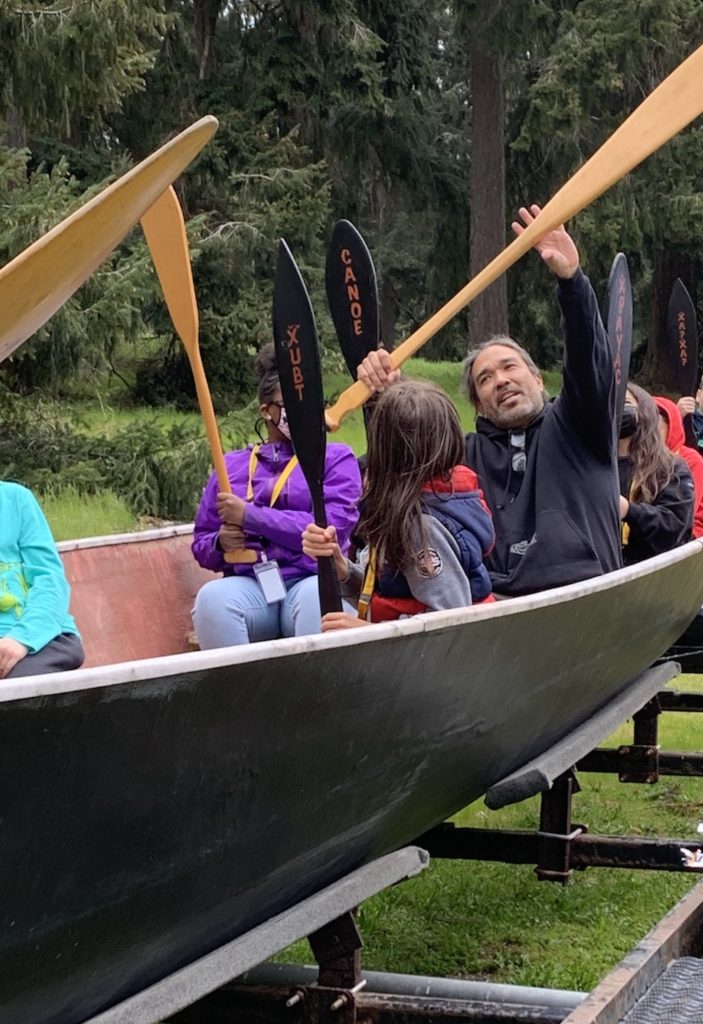
During this activity, a Nisqually Tribal member explores the history of the Nisqually Delta and the significance of canoes and the annual tribal canoe journey with the students – all while sitting inside an actual Nisqually Tribal canoe! Canoe journeys are an important part of Nisqually culture and this station gives students the opportunity to learn all about that history.
Hanford McCloud teaching students about Nisqually canoe journeys
Salmon Dissection
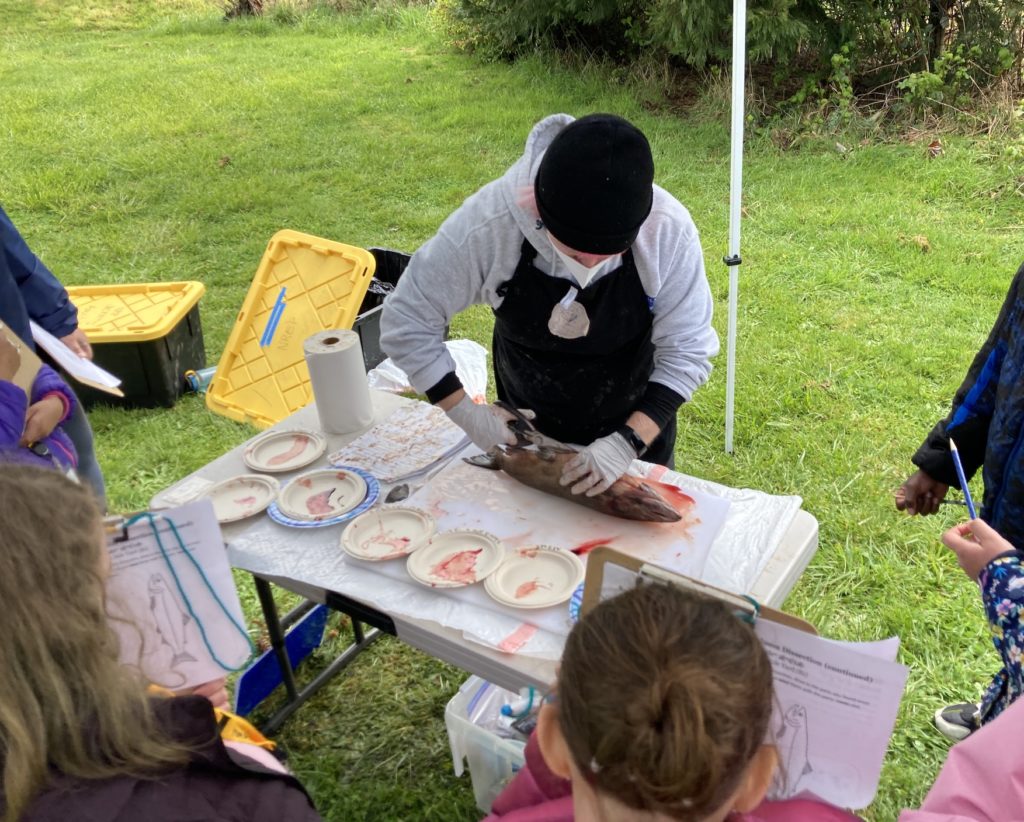
This station gives students an inside look (literally) into the anatomy and functions of salmon and their organs. There are many similarities and a few key differences between how organs function in a salmon versus in a human, so this station aims to help students cultivate a culture of care for these animals. While it may be a bit gross for some students, by the end of the activity everyone is excited to know more about salmon anatomy and may even ask to help with the dissection next time!
NREP member Layne dissecting a Chinook salmon
Streambugs
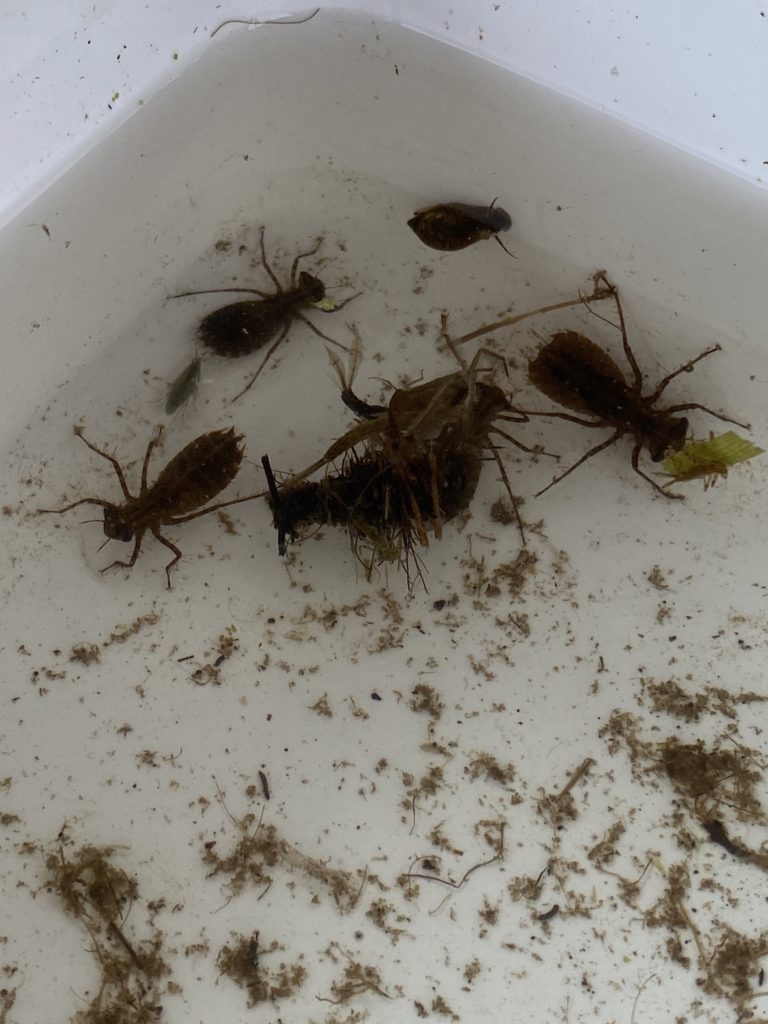
Discover the world of benthic macroinvertebrates at the streambugs station! Streambugs play an important role in the ecosystem and are a staple in the salmon’s diet. Without benthic macroinvertebrates there would be no salmon! Students have the opportunity to examine real live streambugs from the Nisqually River as they play “Benthics Bingo” to see how many bugs they can discover.
Caddisfly and dragonfly larva from the Nisqually watershed
Service Learning Project
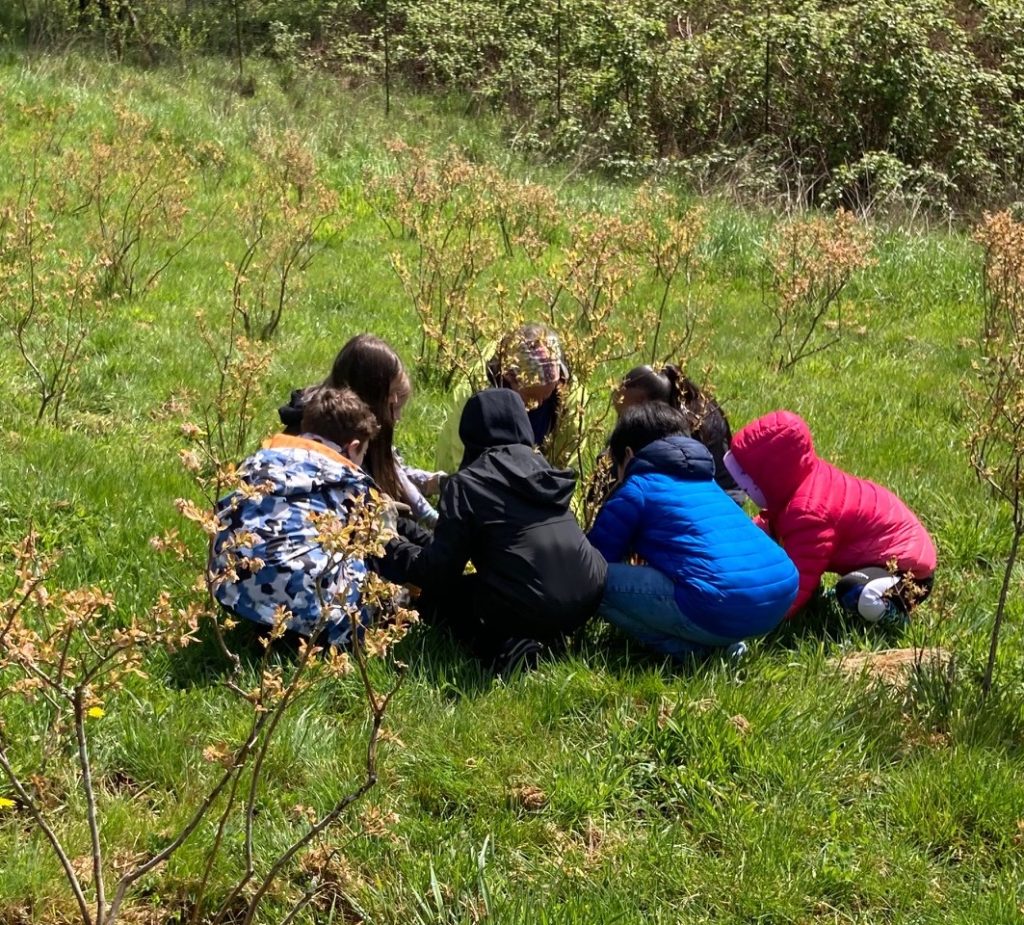
From fruits and vegetables to medicinal herbs, the Nisqually Community Garden supports the Nisqually Tribe by providing healthy and culturally significant produce to community members. At this station, students learn what it takes to care for a garden and the importance of growing healthy food! Service learning offers students a unique opportunity to learn more about the environment while simultaneously taking action that helps their community. This year, the 4th graders worked together to care for and remove weeds from the blueberry patch at sxʷ daʔ dəb.
Students from NTPS weeding in the blueberry patch of the Nisqually gardens
Student Journal
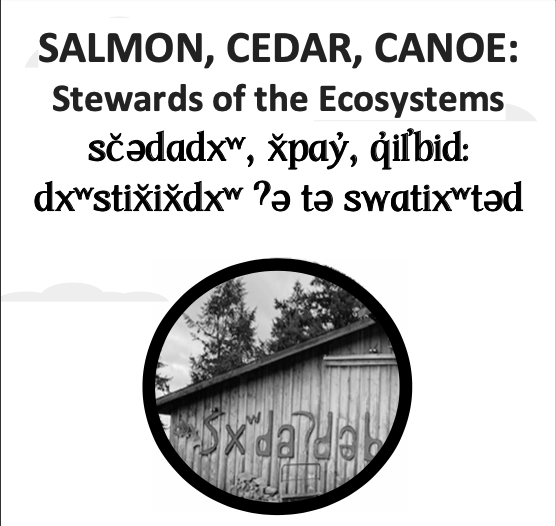
The student journal for the Salmon, Cedar, Canoe: Stewards of the Ecosystem field excursion allows students to keep track of their work throughout the day while also providing supplementary activities and information about the plants and animals they may encounter while at sxʷ daʔ dəb. Thanks to the work done by Nancy Jo Bob at the Nisqually Language Resource Center, students are exposed to Southern Lushootseed – the language of the Nisqually people and other Tribal Communities around the south Puget Sound. The stations, activity titles, and animal names have been translated into Southern Lushootseed and Nisqually Members are currently working on translating the whole journal with the goal of exposing more students to the language! Below is where you can download a copy of the student journal.
Cover of the NTPS field trip student journal